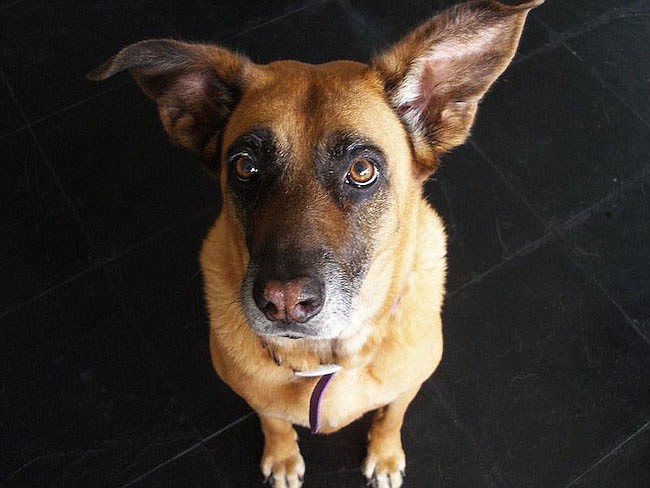- April 18, 2024
-
-
Loading

Loading

While I think dogs of any age are wonderful, there’s something very special about an older dog who has been your beloved companion, even if you recently adopted him. My dog Yankee is now over 9, and as he and the new dogs who come into my life grow older, I want to make sure I do whatever I can to slow the aging process and help my dogs have the best quality of life possible for as long as possible. I’m sure you feel the same way!
Genetics aside, what can we do to help our dogs live longer, healthier, and happier lives? Here are a number of suggestions.
• Maintain your dog’s correct weight. As dogs age, their metabolism slows, they reduce their activity level, yet we often continue to feed the same amount of food we’ve always fed. Cut back on the amount you’re feeding. Educate yourself on ingredients and make sure you’re feeding the highest quality food you can afford.
• Keep exercising your dog. Even arthritic dogs can exercise; the exercise sessions just need to be modified for the dog. Exercise keeps weight down and maintains muscle mass and cardiovascular health. For older, overweight or arthritic dogs, swimming, especially in a warm water pool is the best exercise possible because it works the entire body. My dog Yankee swims weekly and as a 9-1/2-year-old Golden retriever, he is in top physical condition. My business partner Toby’s dog Beau is also in top shape as an 11-1/2-year-old flat coat retriever/shepherd mix. I see the magic of high quality exercise daily as I work with dogs and watch their amazing transformation.
• Regularly groom your dog to help with gray or thinning coats. Regular grooming also helps you spot anything unusual on your dog’s body.
• Consider a high quality supplement that provides added oils and nutrients.
• If your dog has arthritis, give high quality glucosamine supplements to help.
• Try massage to help with pain, circulation and range of motion, and to relieve stress.
• Don’t skip veterinary visits. As dogs age, regular vet visits are critical to detecting potential problems early. When your vet draws blood, ask him to run a senior panel. These are more expensive but give much more information than a regular panel.
• Consider cutting back on the frequency of vaccines. Do titer testing instead.
• Brush your dog’s teeth, try raw marrow bones for natural cleaning, and have regular dental checkups.
Dogs can experience many changes as they age, some more noticeable than others. The best thing you can do is to monitor your dog for physical and behavioral changes and if you think these changes may not be normal, check with your veterinarian. Being proactive with your dog’s health can help him feel younger and better, and you’ll be able to enjoy his company for longer period of time.
Sherri Cappabianca, an expert in the field of canine health and fitness, is the author of two books on canine health, and co-owner of Rocky’s Retreat, an intimate and personal boarding, daycare, hydrotherapy and fitness center, and Barking Dog Fitness, a Gym for Dogs, both located in Orlando. For more information, visit rockysretreat.com or barkingdogfitness.com